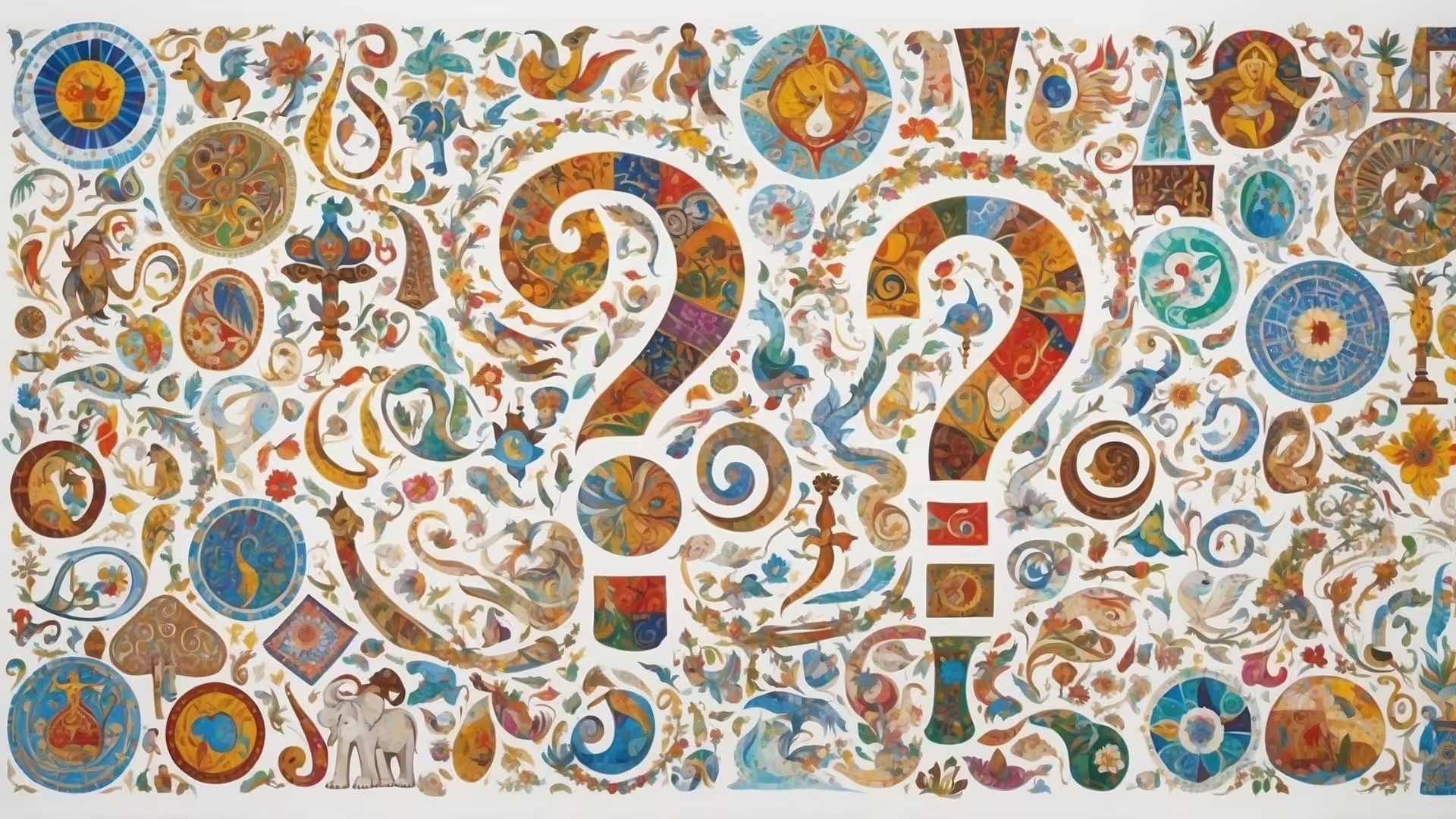- The Gist
- Frequently Asked Questions About Multiculturalism
- 1. What Is Multiculturalism?
- 2. Why Is Multiculturalism Important?
- 3. What Are the Benefits of Multiculturalism?
- 4. Are There Challenges to Multiculturalism?
- 5. How Does Multiculturalism Impact Education?
- 6. Does Multiculturalism Affect the Workplace?
- 7. What Are Some Examples of Multiculturalism in Action?
- 8. Is Multiculturalism the Same as Assimilation?
- 9. How Can Individuals Support Multiculturalism?
- 10. What Are the Future Prospects of Multiculturalism?
- Embracing the Value of Multiculturalism
- Let’s Talk
- Let’s Learn Vocabulary in Context
The Gist
Multiculturalism is all around us, shaping the communities we live in, the places we work, and the friendships we form. But what does it really mean to live in a multicultural society? How does it impact our day-to-day lives? People have many questions about multiculturalism—its benefits, challenges, and what it means for society. This FAQ covers some of the most common questions people ask about multiculturalism and its role in our world. That’s just the gist of what this post is about. If you want to dig deeper into the topic, some discussions about it, and learn some key vocabulary from its context, read the post.
Frequently Asked Questions About Multiculturalism
Multiculturalism is a concept that celebrates diversity within a society, where people from different cultural, ethnic, and religious backgrounds coexist, often in the same cities, schools, and workplaces. As our world becomes increasingly globalized, multicultural societies are becoming more common. Here, we’ll answer some of the most frequently asked questions about multiculturalism to help deepen your understanding of its impact and importance.
1. What Is Multiculturalism?
Multiculturalism refers to the presence and coexistence of multiple cultures within a community or country. It’s the idea that society can thrive by including diverse cultures and that each culture has unique strengths and perspectives to offer. In a multicultural society, cultural differences are respected and valued, encouraging people to embrace a wider view of the world.
2. Why Is Multiculturalism Important?
Multiculturalism is important because it promotes understanding, tolerance, and inclusivity. When people from different backgrounds come together, they share knowledge, perspectives, and skills. This exchange often leads to innovation, creativity, and a stronger community. Multiculturalism also helps break down stereotypes and prejudice, fostering respect for diverse ways of life. It teaches us to appreciate the richness that comes from a variety of traditions, languages, and values, making societies more resilient and adaptable.
3. What Are the Benefits of Multiculturalism?
The benefits of multiculturalism are numerous. Economically, multicultural societies often experience growth as diversity brings new ideas, skills, and business opportunities. Culturally, it makes communities more vibrant by celebrating festivals, foods, art, and music from different backgrounds. Socially, multiculturalism encourages empathy, as people learn about each other’s histories and customs. Additionally, multicultural societies can improve diplomatic relations, as citizens may feel a stronger connection to other countries, fostering a spirit of global cooperation.
4. Are There Challenges to Multiculturalism?
While multiculturalism has many benefits, it also comes with challenges. Language barriers can sometimes lead to misunderstandings, while cultural differences might cause tension if not addressed with respect and open-mindedness. Additionally, some may fear that their own cultural identity is at risk of being overshadowed in a highly diverse society. However, these challenges are often addressed through education, cultural exchange programs, and policies that promote inclusion and equality.
5. How Does Multiculturalism Impact Education?
In multicultural societies, education often includes multicultural perspectives, helping students learn about different cultures, histories, and viewpoints. Schools may celebrate cultural diversity through events, language programs, and inclusive curricula. Multicultural education helps students develop respect and appreciation for different backgrounds, preparing them for a globalized world. It also allows children to see their own cultures represented, which can increase self-confidence and a sense of belonging.
6. Does Multiculturalism Affect the Workplace?
Absolutely. Multiculturalism in the workplace can lead to more innovative and dynamic teams. When people from different backgrounds collaborate, they bring fresh ideas and perspectives, which can improve problem-solving and creativity. Additionally, diverse teams can better understand and serve a wider range of customers. However, managing a multicultural workforce requires sensitivity to cultural differences and open communication to prevent misunderstandings.
7. What Are Some Examples of Multiculturalism in Action?
Examples of multiculturalism can be seen in cities like New York, London, Sydney, and Toronto, where people from various backgrounds coexist and contribute to the local culture. These cities host multicultural festivals, offer diverse cuisines, and provide resources in multiple languages to support inclusion. Additionally, multiculturalism is often reflected in government policies that protect minority rights, promote equal opportunities, and support integration.
8. Is Multiculturalism the Same as Assimilation?
No, multiculturalism and assimilation are different concepts. Assimilation refers to the process where individuals or groups adopt the cultural traits of a dominant society, often losing aspects of their original culture in the process. In contrast, multiculturalism encourages people to retain their unique cultural identities while being part of a larger society. Rather than requiring people to conform to a single cultural norm, multiculturalism supports coexistence, where each culture is valued equally.
9. How Can Individuals Support Multiculturalism?
Supporting multiculturalism starts with an open mind and a willingness to learn about other cultures. You can support multiculturalism by attending cultural events, trying foods from different backgrounds, and learning about traditions and customs that are different from your own. Additionally, speaking out against prejudice and stereotypes helps create a more inclusive environment. Being curious, respectful, and welcoming to others can make a meaningful impact on your community.
10. What Are the Future Prospects of Multiculturalism?
As globalization continues, multiculturalism is likely to grow. The ability to interact with and understand people from diverse backgrounds is increasingly valuable in today’s interconnected world. However, the future of multiculturalism will depend on how societies address challenges such as integration, equal opportunity, and respect for all cultures. As people and governments work toward inclusive and supportive policies, multiculturalism will continue to shape communities, creating societies that are rich, diverse, and adaptable to change.
Embracing the Value of Multiculturalism
Multiculturalism offers societies the chance to become more connected, creative, and compassionate. Although there are challenges, the benefits of living in a diverse community are immense. By understanding and embracing multiculturalism, we gain a broader perspective on the world and build stronger, more inclusive societies. As we move forward, multiculturalism will remain a vital part of how we learn, work, and live together.
Let’s Talk
Multiculturalism—such a big concept, right? But think about how it actually plays out in daily life. It’s not just some abstract idea; it’s the mix of people, foods, languages, and stories we encounter almost everywhere. Have you ever tried a new dish or heard someone speak a language that made you curious? That’s multiculturalism, right there in action, expanding our view of the world in small yet meaningful ways.
Living in a multicultural society can feel like having the world at your doorstep. You might have a friend who celebrates Diwali, another who observes Ramadan, or maybe you find yourself invited to Lunar New Year celebrations. These experiences not only teach us about others but also make us reflect on our own backgrounds. It’s like a constant reminder of how unique we all are, yet how much we share in common.
There’s also a practical side to multiculturalism that often goes unnoticed. Imagine you’re at work and the team has to solve a complex problem. A multicultural team can approach it from multiple angles, bringing in different ideas that might not have come up otherwise. There’s something powerful about pooling perspectives. It’s like building a puzzle with pieces from all over the world—each piece might look different, but together, they create a complete picture.
And let’s be honest, living in a multicultural society can sometimes come with its challenges, right? We all have habits or traditions that might seem confusing to someone from another culture. Maybe you’re used to hugging as a greeting, but others might prefer a bow or a handshake. These little differences can make things interesting and sometimes even funny. But with a bit of curiosity and an open mind, they’re easily navigated. So here’s a thought: Have you ever experienced a cultural misunderstanding that later turned into a learning moment?
Ultimately, multiculturalism isn’t about everyone blending into one “super culture.” It’s about maintaining our unique traditions while being open to learning from others. It’s the idea that, in a world so interconnected, respecting and celebrating diversity can make us all a little richer, a little more understanding, and a lot more connected.
Let’s Learn Vocabulary in Context
Let’s break down some useful words and phrases from our multiculturalism discussion. First up, diversity. Diversity means variety, especially when it comes to people from different backgrounds. When you hear that a place is “diverse,” it means you’ll find a mix of races, religions, languages, and customs. It’s like a colorful tapestry with threads from all over the world.
Next, we have tolerance. Tolerance is about accepting and respecting differences, even when they’re not what you’re used to. You might say that practicing tolerance means understanding that someone else’s perspective or way of life is just as valuable as your own.
Cultural exchange refers to the sharing of traditions, foods, music, and other elements between cultures. Think of it like a swap—you get to experience someone else’s culture while they experience yours. A food festival, for example, is a great place for cultural exchange.
Integration is the process of different groups coming together to form a community. Integration doesn’t mean giving up your identity; it means finding a way to coexist while still being yourself. It’s a bit like adding a new ingredient to a recipe—you’re not changing the whole dish, just enhancing it.
Then there’s identity. Identity is who you are, shaped by your background, culture, and experiences. When we talk about cultural identity, we’re talking about the aspects of our culture that make us who we are, like family traditions or our native language.
Perspective is another key word. Your perspective is how you see and understand things, influenced by your experiences and beliefs. In a multicultural society, different perspectives can lead to creative solutions and deeper understanding.
Empathy is the ability to understand and share the feelings of another person. Empathy is essential in a multicultural society because it helps us connect with others by seeing things from their viewpoint.
Tradition refers to practices or customs passed down through generations. Traditions help keep cultures alive, and in multicultural societies, we get the chance to share and learn from each other’s traditions.
Prejudice is when someone forms an opinion about others based on stereotypes rather than facts. In a multicultural world, overcoming prejudice is important for building respect and understanding between different groups.
Lastly, we have globalization. Globalization is the process of the world becoming more connected through trade, communication, and travel. It’s one of the main reasons multiculturalism is so common today.
Here’s something to consider: Which of these words do you think impacts your life the most, and how do you experience it in daily life? And if you could introduce one part of your culture to others, what would it be?










0 Comments